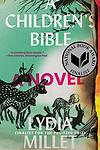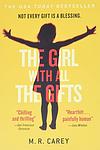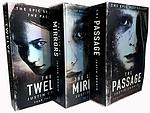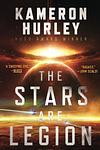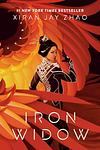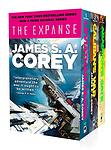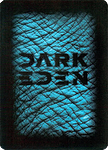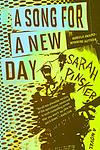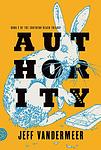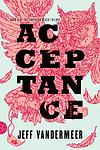The Greatest "Dystopian, Fiction" Books Since 2010
Click to learn how this list is calculated.
This list represents a comprehensive and trusted collection of the greatest books. Developed through a specialized algorithm, it brings together 300 'best of' book lists to form a definitive guide to the world's most acclaimed books. For those interested in how these books are chosen, additional details can be found on the rankings page.
Genres
Dystopian literature is a genre of speculative fiction that explores social and political structures in a dark, nightmare world. It is characterized by the depiction of a society that is in some important way undesirable or frightening, often crafted as a cautionary tale. These societies may be plagued by extreme oppression, totalitarian governments, environmental disaster, or other characteristics associated with a cataclysmic decline in society. Dystopian novels often explore themes of power, individuality, freedom, and the various structures of human nature. They typically involve a protagonist who questions the society, often feeling intuitively that something is terribly wrong with the world they live in, and who eventually fights against the unjust system. Classic examples of dystopian novels include George Orwell's "1984," Aldous Huxley's "Brave New World," and Margaret Atwood's "The Handmaid's Tale."
Countries
Date Range
Reading Statistics
Click the button below to see how many of these books you've read!
Download
If you're interested in downloading this list as a CSV file for use in a spreadsheet application, you can easily do so by clicking the button below. Please note that to ensure a manageable file size and faster download, the CSV will include details for only the first 500 books.
Download-
26. The Testaments by Margaret Atwood
This sequel to a dystopian novel set in Gilead, a totalitarian society in what was formerly part of the United States, is narrated by three female characters. The book explores the inner workings of Gilead, its politics, and its eventual downfall. It delves into the lives of the women, their struggles, and their roles in the society, providing a deeper understanding of the oppressive regime. The novel also examines themes of power, resistance, and the ways in which systems of control can be challenged and eventually dismantled.
-
27. Red Clocks by Leni Zumas
In a world where abortion has become illegal in America, in-vitro fertilization is banned and the Personhood Amendment grants rights of life, liberty, and property to every embryo, five women navigate these new barriers. A single high-school teacher desperate for a child, a frustrated mother of two, a pregnant teenager, a polar explorer from the 19th century, and a maverick herbalist facing charges of attempted murder for trying to help women with unwanted pregnancies, all grapple with the implications of these restrictive laws on their lives and identities.
-
28. A Children’s Bible by Xe Sands, Lydia Millet
"A Children's Bible" follows a group of children and their parents who are spending the summer in a rented house in the countryside. As the parents indulge in drinking and infidelity, the children are left to their own devices and begin to explore the surrounding wilderness. When a severe storm hits and the world as they know it begins to crumble, the children turn to their own imaginations and a battered old Bible for guidance. The novel is a poignant commentary on climate change, societal decay, and the resilience of youth.
-
29. Severance by Ling Ma
This novel is a satirical take on the post-apocalyptic genre, blending elements of horror, humor, and social commentary. It tells the story of Candace Chen, a millennial office drone in New York City, who finds herself one of the few survivors of a global pandemic known as Shen Fever. The disease turns its victims into repetitive, predictable creatures stuck in loops of their former routines. As society crumbles around her, Candace joins a group of survivors led by the enigmatic Bob, embarking on a journey to find a new sanctuary. Through Candace's eyes, the narrative explores themes of nostalgia, capitalism, and the search for meaning in a pre- and post-apocalyptic world, all while questioning what it truly means to be alive in a world that's slowly fading away.
-
30. The Girl With All The Gifts by M. R. Carey
In a dystopian future where humanity is ravaged by a fungal infection that turns its hosts into mindless, flesh-eating "hungries," a unique group of children who retain their intellect despite being infected are studied at a military base. Among them is a special girl with extraordinary abilities, who forms a bond with her teacher. When the base is overrun, the girl, her teacher, a scientist, and a soldier must journey to find safety, confronting the horrors of the outside world. As they travel, the girl's true nature and the potential for a new world come to light, challenging what it means to be human and what the future may hold for mankind.
-
31. The Passage by Justin Cronin
"The Passage" is a gripping post-apocalyptic novel that follows the journey of a young girl named Amy, who holds the key to humanity's survival. Set in a world ravaged by a government experiment gone wrong, the story explores themes of love, sacrifice, and the fight for redemption. As Amy grows older, she embarks on a perilous quest to find her purpose and confront the sinister beings known as Virals, while a group of survivors battles against the darkness that threatens to consume them all.
-
32. Vn by Madeline Ashby
In a futuristic world where virtual reality is seamlessly integrated into everyday life, a young girl named Amy Peterson is created to serve as a companion for a wealthy businessman's daughter. As Amy navigates the complexities of her existence and develops her own consciousness, she must confront the moral and ethical implications of her existence and the blurred lines between reality and virtuality. With thought-provoking themes and a captivating narrative, this book explores the nature of humanity and the consequences of advancing technology.
-
33. The Chimes by Anna Smaill
Set in a dystopian future where the written word is forbidden and memories are washed away by the melodic power of the Chimes, the novel follows a young man with a unique gift for remembering the past. He joins a group of memory keepers who are fighting against the oppressive order that controls society through music. As he embarks on a journey filled with danger and discovery, he uncovers the truth about his own past and the potential to change the future. The narrative weaves a tale of resistance, the importance of memory, and the power of music to both dominate and liberate.
-
34. The Stars Are Legion by Kameron Hurley
"The Stars Are Legion" is a science fiction novel set in a universe comprised of living, organic worlds known as the Legion. The story follows Zan, a warrior with no memory of her past, as she navigates a treacherous landscape of warring factions and decaying civilizations. With the fate of the Legion at stake, Zan embarks on a dangerous mission to unlock the secrets of her identity and save her people from extinction. Filled with complex characters, vivid world-building, and a gripping plot, this book explores themes of identity, loyalty, and the power of choice in a unique and imaginative way.
-
35. Autonomous by Annalee Newitz
In a future where biotech has advanced to create patented drugs with the power to extend life, a pirate with a submarine traverses the seas, distributing cheap generic versions of these medications to those who can't afford them. Meanwhile, a military agent and his robot sidekick are on a relentless pursuit to stop her, enforcing the intellectual property laws of powerful pharmaceutical companies. As the chase intensifies, the boundaries between human and machine blur, raising profound questions about autonomy, individual rights, and the ethics of scientific discovery.
-
36. Prince Of Thorns by Mark Lawrence
In a brutal, post-apocalyptic medieval world, a young, vengeful prince leads a band of outlaws on a bloody quest to reclaim his stolen birthright. Scarred by the horrors of his past and the dark magic that lurks within him, the prince is determined to ascend to the throne, no matter the cost. His path is one of ruthless ambition and savage violence, challenging the remnants of a broken empire and the forces of a corrupt church. As he navigates treachery, betrayal, and his own inner demons, the prince's journey questions the very nature of power and the price of redemption.
-
37. Iron Widow by Xiran Jay Zhao
In a futuristic world inspired by Chinese history, a young woman seeks vengeance for her sister's death in a patriarchal military system where male pilots of giant Chrysalises, mecha robots used to battle alien mechs, are revered, but female co-pilots must sacrifice their lives to boost the males' psychic energy. She unexpectedly survives the fatal link with her sister's murderer, emerging as a powerful Iron Widow, a rare female pilot who can control a Chrysalis on her own. As she rises through the ranks, she must navigate a treacherous court intrigue, form alliances, and confront the oppressive system, all while unraveling the dark secrets behind the ongoing war with the aliens.
-
38. Caliban's War by James S. A. Corey
In the gripping sequel to a science fiction series set in a future where humanity has colonized the solar system, tensions escalate as Earth, Mars, and the Outer Planets Alliance vie for control and resources. The discovery of a mysterious alien protomolecule has already wrought havoc on human civilization, and now, the fragile peace is threatened by new confrontations. When a high-ranking official's daughter goes missing on Ganymede, a soldier, a detective, a politician, and a rogue scientist must unite to unravel a conspiracy that could lead to war and the spread of the alien substance, risking all of human existence. Their journey takes them across the solar system, where they encounter monstrous creations, political intrigue, and questions about what it means to be human.
-
39. Babylon's Ashes by James S. A. Corey
In the science fiction saga, the aftermath of a catastrophic interplanetary war threatens the fragile balance of power among the various factions of humanity spread across the solar system. The book follows the crew of a rogue ship as they navigate the political turmoil and confront the radical faction responsible for using an alien technology to hurl asteroids at Earth, causing massive devastation. As the crew seeks to unify the divided human colonies and prevent further chaos, they must also deal with personal demons and shifting alliances. The narrative weaves together the perspectives of diverse characters, each grappling with the consequences of the conflict and the need for cooperation to ensure the survival of the human species amidst the ruins of the once-great civilizations of Earth and Mars.
-
40. The Testament Of Jessie Lamb by Jane Rogers
"The Testament of Jessie Lamb" by Jane Rogers is a thought-provoking dystopian novel set in a world where a deadly virus threatens to wipe out humanity. Jessie Lamb, a sixteen-year-old girl, is determined to make a difference and save the future by volunteering for a controversial medical experiment that could potentially save the human race. As she navigates the ethical dilemmas and sacrifices that come with her decision, Jessie explores the complexities of love, sacrifice, and the value of life in a world on the brink of extinction.
-
41. Dark Eden by Chris Beckett
"Dark Eden" by Chris Beckett is a dystopian science fiction novel set on a planet called Eden, where a small group of humans have been stranded for generations. The descendants of the original survivors have developed their own unique culture and language, but their limited resources and lack of knowledge about the outside world create a constant struggle for survival. As the protagonist, John Redlantern, challenges the beliefs and traditions of his community, he embarks on a dangerous journey to find a way off the planet and discover the truth about their existence.
-
42. The Obelisk Gate by N. K. Jemisin
In the second installment of a groundbreaking fantasy trilogy, the world grapples with an apocalyptic season of catastrophic climate change known as the Fifth Season. The narrative follows a mother searching for her missing daughter while coming to terms with her own seismic powers that could either save humanity or hasten its end. As communes and factions struggle for survival and dominance, the story delves into themes of oppression, resistance, and the complex nature of human relationships, all set against a backdrop of geological and magical upheaval. The protagonist must navigate a landscape of political intrigue and ancient mysteries to unlock the potential of obelisks, powerful artifacts that could be the key to the world's salvation or destruction.
-
43. Rosewater by Tade Thompson
"Rosewater" by Tade Thompson is a captivating science fiction novel set in a future Nigeria. The story follows Kaaro, a government agent with psychic abilities who works in the town of Rosewater, built around an alien biodome that heals and grants powers to those who enter it. As Kaaro navigates the complex world of telepathy, government conspiracies, and a mysterious alien presence, he becomes entangled in a dangerous plot that could change the fate of humanity. With its rich world-building and thought-provoking exploration of power and identity, "Rosewater" is a thrilling and immersive read.
-
44. Dreams Before The Start Of Time by Anne Charnock
"Dreams Before The Start Of Time" by Anne Charnock is a thought-provoking novel set in a future where reproductive technology has advanced to the point where people can choose the genetic makeup of their children. The story follows multiple characters across generations, exploring the ethical and emotional implications of these advancements on family dynamics, personal identity, and the nature of parenthood. Through its richly developed characters and intricate plot, the book raises questions about the role of technology in shaping our lives and the complex interplay between science and humanity.
-
45. The City in the Middle of the Night by Charlie Jane Anders
Set on a tidally locked planet where one side perpetually faces the sun while the other is shrouded in endless night, this novel follows the intertwined lives of two young women. One, a working-class student, is exiled into the night after a rebellious act, where she discovers a city thriving in the darkness. The other, a privileged but disillusioned socialite, seeks to change the corrupt society from within. Their paths cross as they become entangled in a struggle against an oppressive regime and encounter an alien species with a unique perspective on life. Together, they must navigate a world of extreme inequality and environmental peril, challenging their beliefs and fighting for a better future.
-
46. The Animals In That Country by Laura Jean McKay
"The Animals In That Country" by Laura Jean McKay is a gripping and thought-provoking novel set in a near-future Australia. The story follows Jean, a foul-mouthed and alcoholic grandmother, who discovers she has the ability to understand the language of animals after contracting a mysterious virus. As a deadly pandemic spreads across the country, Jean embarks on a journey with a dingo named Sue to find her pregnant daughter and escape the chaos. McKay skillfully explores themes of communication, human-animal relationships, and the fragile nature of society, creating a compelling narrative that challenges our perception of the world around us.
-
47. A Song for a New Day by Sarah Pinsker
In a future where public gatherings are illegal due to terrorist attacks and a pandemic, society has adapted to isolation, with virtual reality concerts replacing live events. The story follows a musician who once thrived on the energy of live performances and a talent scout for a corporate entertainment company, as they navigate this new world. The musician, longing for the connection that once came with her art, becomes involved in an underground music scene, defying the law to perform for small, secret gatherings. Meanwhile, the talent scout, whose job is to find musicians for virtual performances, begins to question the sterile world she's helping to perpetuate. Their paths intersect, leading to a powerful exploration of the importance of community and the transformative power of music in a world where the very essence of human connection has been fundamentally altered.
-
48. Authority by Jeff VanderMeer
"Authority" is the second book in a trilogy that delves into the mysteries of a clandestine government agency tasked with investigating an enigmatic and dangerous region known as Area X. The narrative follows a character brought in to oversee the agency after the tumultuous events of the first expedition. As he attempts to assert control and understand the strange occurrences within Area X, he encounters uncooperative staff, cryptic notes left by his predecessor, and the unsettling realization that the contamination thought to be contained within Area X may have more influence over the agency than previously believed. The protagonist's journey is one of psychological unraveling, as he grapples with the opaque hierarchy of the organization and the increasingly blurred lines between reality and the otherworldly phenomena associated with the area he is supposed to manage.
-
49. Acceptance by Jeff VanderMeer
"Acceptance" is the final installment in a science fiction trilogy that delves into the mysteries of Area X, a surreal and ever-changing landscape that defies explanation and has claimed the lives and sanity of many who have ventured into it. As the narrative shifts between multiple characters and timelines, the novel explores the fates of the expedition members, the origins of Area X, and the secretive agency attempting to understand it. The story weaves together the past and present, blending elements of horror, environmental science, and psychological drama to reveal the profound and often terrifying transformations wrought by this enigmatic zone. Through the eyes of a lighthouse keeper, a former director of the agency, and others deeply affected by Area X, the book examines themes of identity, the human impact on the environment, and the unknowable nature of the world around us.
-
50. An Unkindness Of Ghosts by Rivers Solomon
The novel explores the harsh life aboard the HSS Matilda, a spaceship organized much like the antebellum South, where the lower decks are populated by dark-skinned sharecroppers ruled by white overseers. The protagonist, a neurodivergent, queer black woman, serves as the ship's healer and navigates the oppressive social structure while uncovering the secrets of her mother's past and the ship's mysterious journey. Her search for truth leads to revelations that could alter the fate of the Matilda's segregated society, as she grapples with the complexities of identity, autonomy, and resistance against a backdrop of systemic injustice and intergenerational trauma.
Reading Statistics
Click the button below to see how many of these books you've read!
Download
If you're interested in downloading this list as a CSV file for use in a spreadsheet application, you can easily do so by clicking the button below. Please note that to ensure a manageable file size and faster download, the CSV will include details for only the first 500 books.
Download

